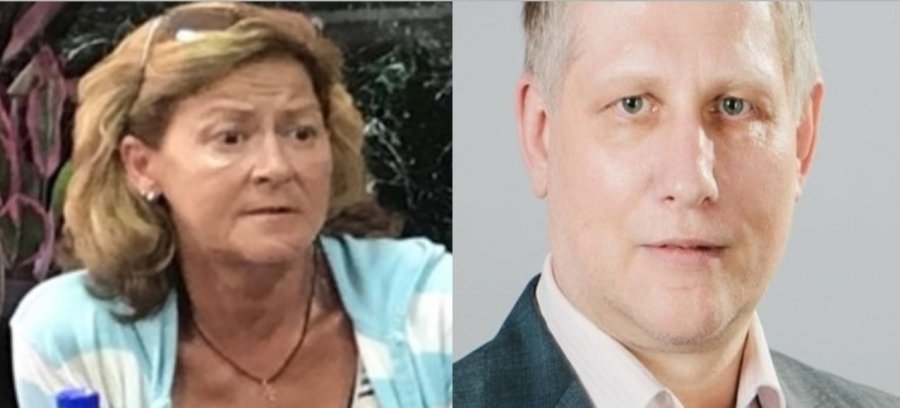‘Defamation’ criminal charges for civic activism in Russian-occupied Crimea

A new criminal prosecution appears to be underway in occupied Crimea, with the pretext being a social media post over corruption, with this treated as ‘defamation’.
A search of the home of Yalta blogger and civic activist Lyudvika Papadopulu was carried out on 4 February, with the investigators removing not only her technical devices, but the laptop which her son needs for his schoolwork. Although Papadopulu is officially only a ‘witness’, it is ominous that both she and her lawyer, Alexei Ladin, were forced to sign undertakings not to disclose any information. There was an attempt to interrogate Papadopulu, however she refused to answer any questions. Given that a search had been undertaken and no information given as to what this was all about, she rightly feared that what she said could end up used against her.
Concern is also inevitable given that the ‘investigative measures’ on Thursday were headed by Anton Guly, who played an active role in the criminal prosecution of Gulsum Alieva, Crimean Solidarity activist and daughter of prisoner of conscience, Muslim Aliev, over an entirely innocuous reposted image. He was equally involved in the politically motivated persecution of journalist Alexei Nazimov and pro-Russian politician Pavel Stepanchenko. The two ended up imprisoned on totally bizarre ‘extortion’ charges after criticizing the ruling ‘United Russia’ party. It would seem that Guly’s prowess in political cases was noticed, as he was then merely an investigator for the Alushta branch of Russia’s Investigative Committee, and is now working for the IC Central Department.
It seems that the visitation in Yalta coincided with an attempt, by people from Russia’s Investigative Committee and so-called Centre for countering extremism, to search the flat in Moscow where Russian civic activist Vladimir Garnachuk is registered. Garnachuk is the head of the ‘Clean Shore. Crimea’ civic organization and also moderates a Facebook group entitled ‘Board of Shame for Crimean officials’. He confirmed to Krym.Realii that he is facing criminal charges over supposed ‘defamation in the media or via the Internet’ (Article 128.1 § 2 of Russia’s criminal code). Garnachuk himself writes that the alleged ‘defamation is supposed to have been in a Facebook post from August 2019. “The formal initiator of the case is some director of the judicial department in Crimea, Kerim Akuyev who didn’t like what is written about him”. Garnachuk, however, assumes that the real initiator is Sergei Aksyonov, the Russian-installed Crimean ‘leader’. He suggests that Aksyonov “has decided to punish me a bit, and has taken Lyudvika Padadopolu as hostage”
The post in question was about the alleged seizure of the Parus sanatorium which Akuyev was involved in, together, seemingly, with Aksyonov.
Krym.Realii points out that the situation with Parus was very widely reported at the time. Garnachuk himself says that he does not remember writing any text criticizing Akuyev and believes that it could be a provocation, with the real aim being to intimidate civic activists and shut them up.
Ladin certainly assumes that the real aim of the search of his client was not the removal of technology, but to put psychological pressure on Papadopulu. The publication had absolutely nothing to do with her and she did not even ‘like’ it on Facebook. They will be lodging an appeal against the measures, although in a Russian-controlled ‘court’ there seems very little likelihood of success.
In December, Russian President Vladimir Putin signed into force a number of repressive laws with ramifications for Crimea while it remains under Russian occupation. One of the bills introduces possible imprisonment for such alleged ‘defamation’, while making the definition of defamation dangerously broad and, therefore, easy to abuse.
See also: Freed Ukrainian journalist: Criticize those in power in Crimea, and you’ll end up behind bars





